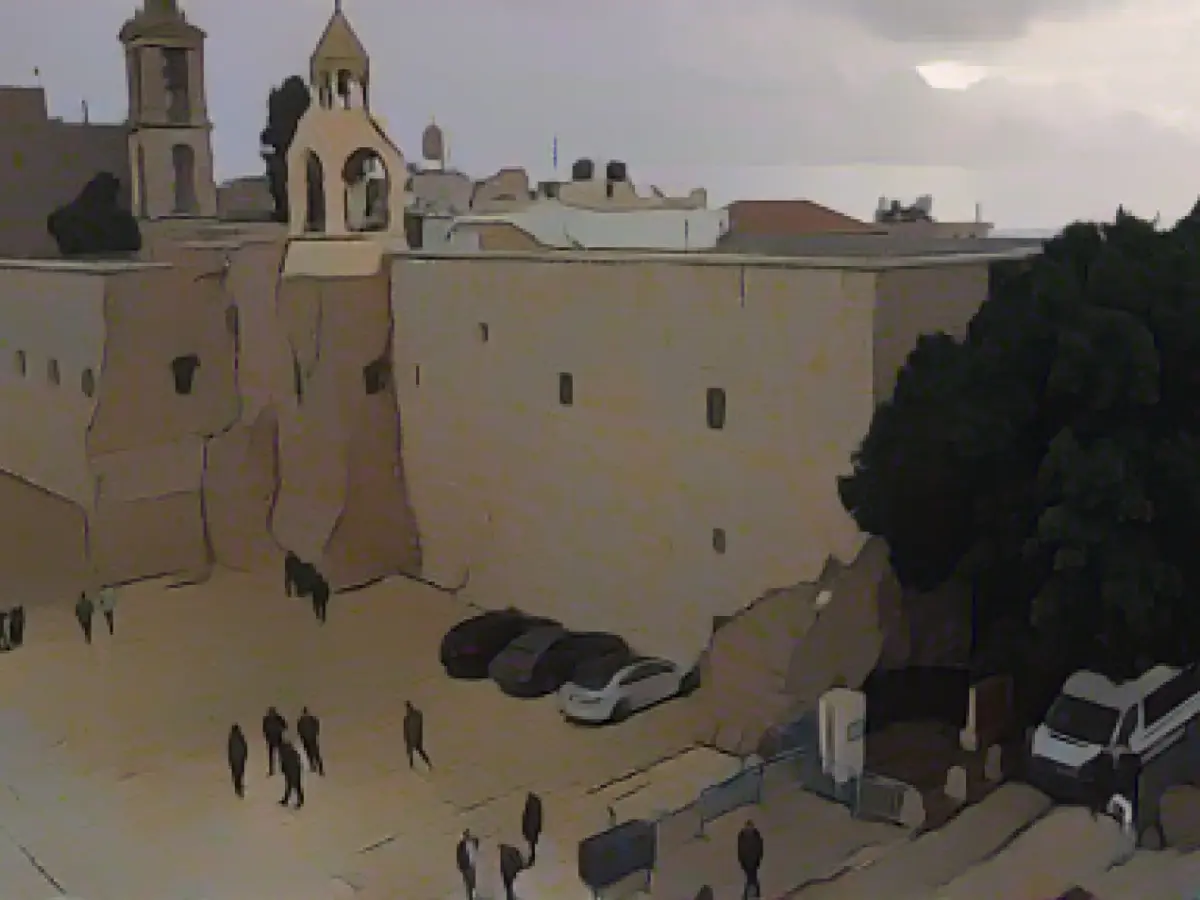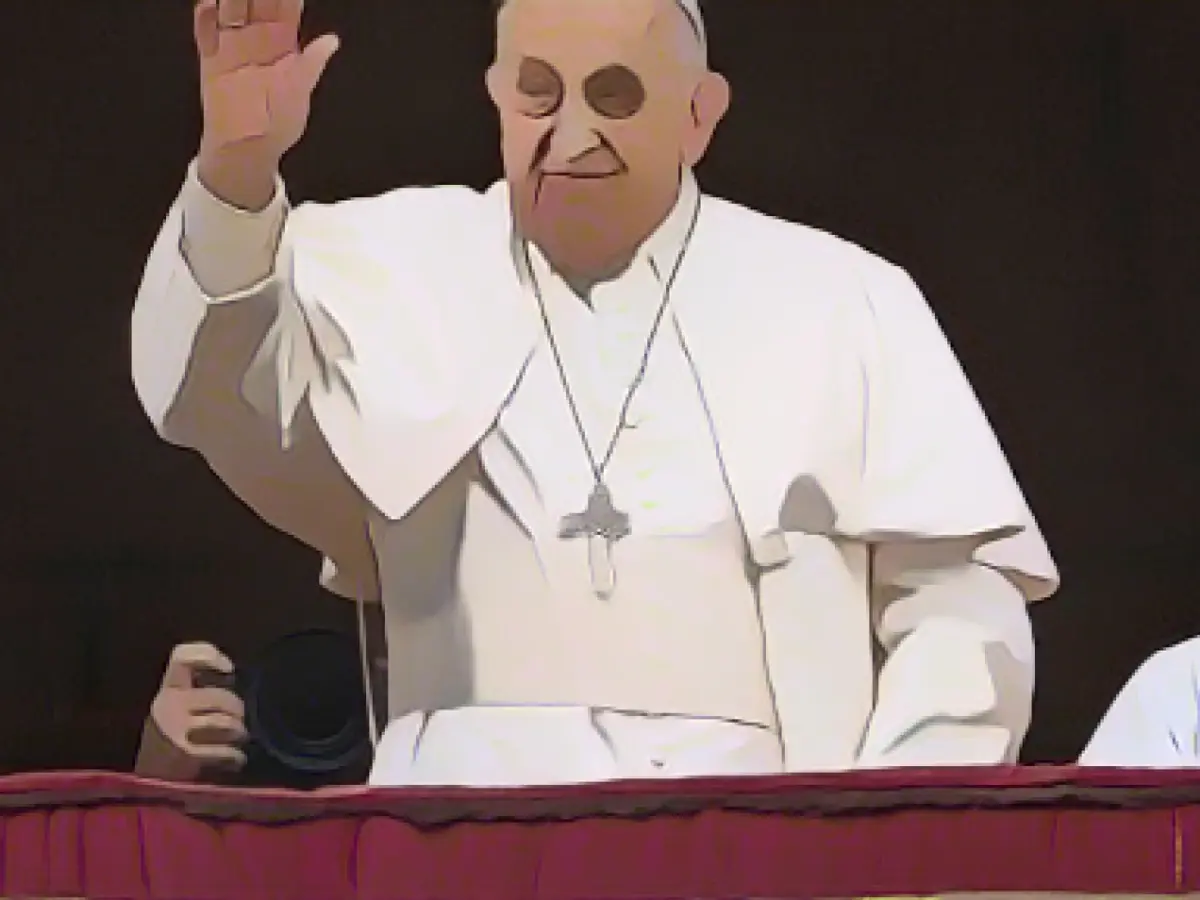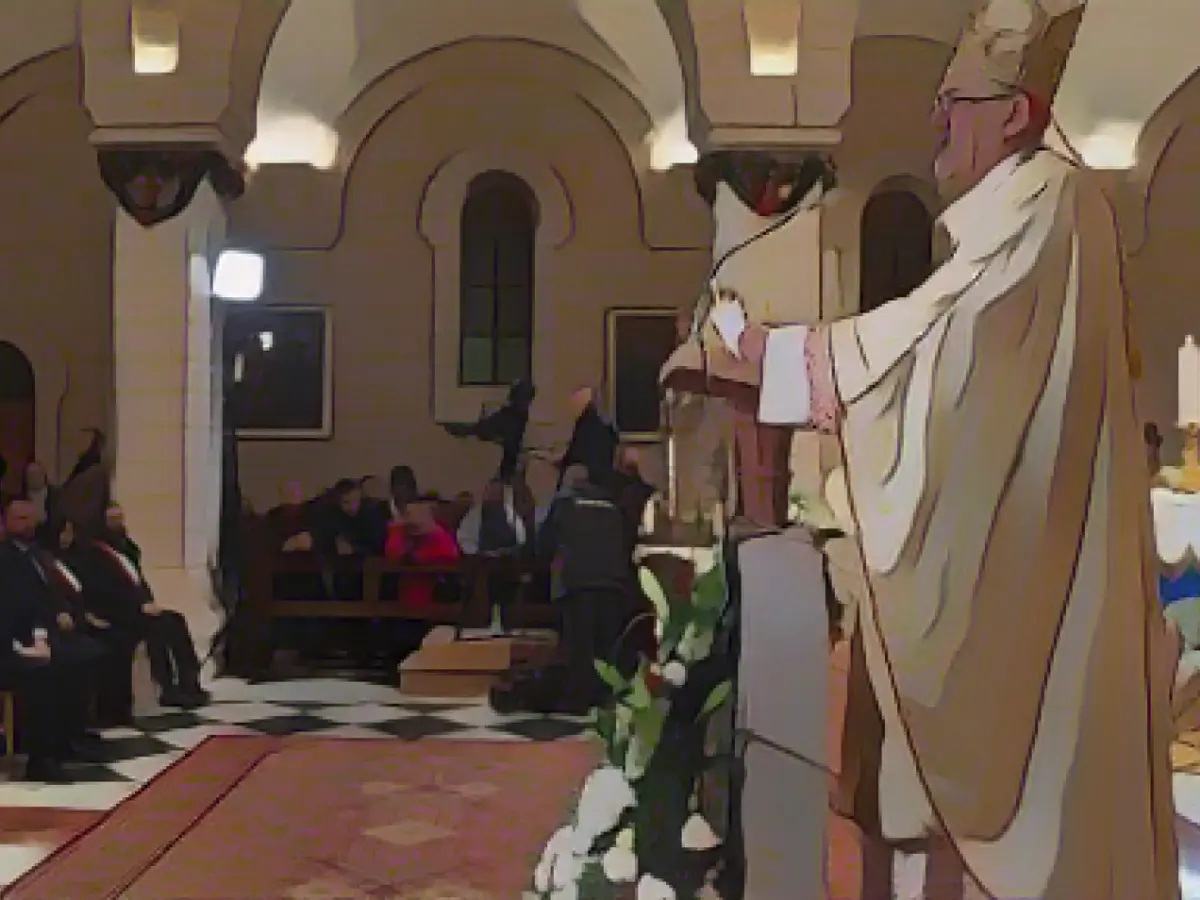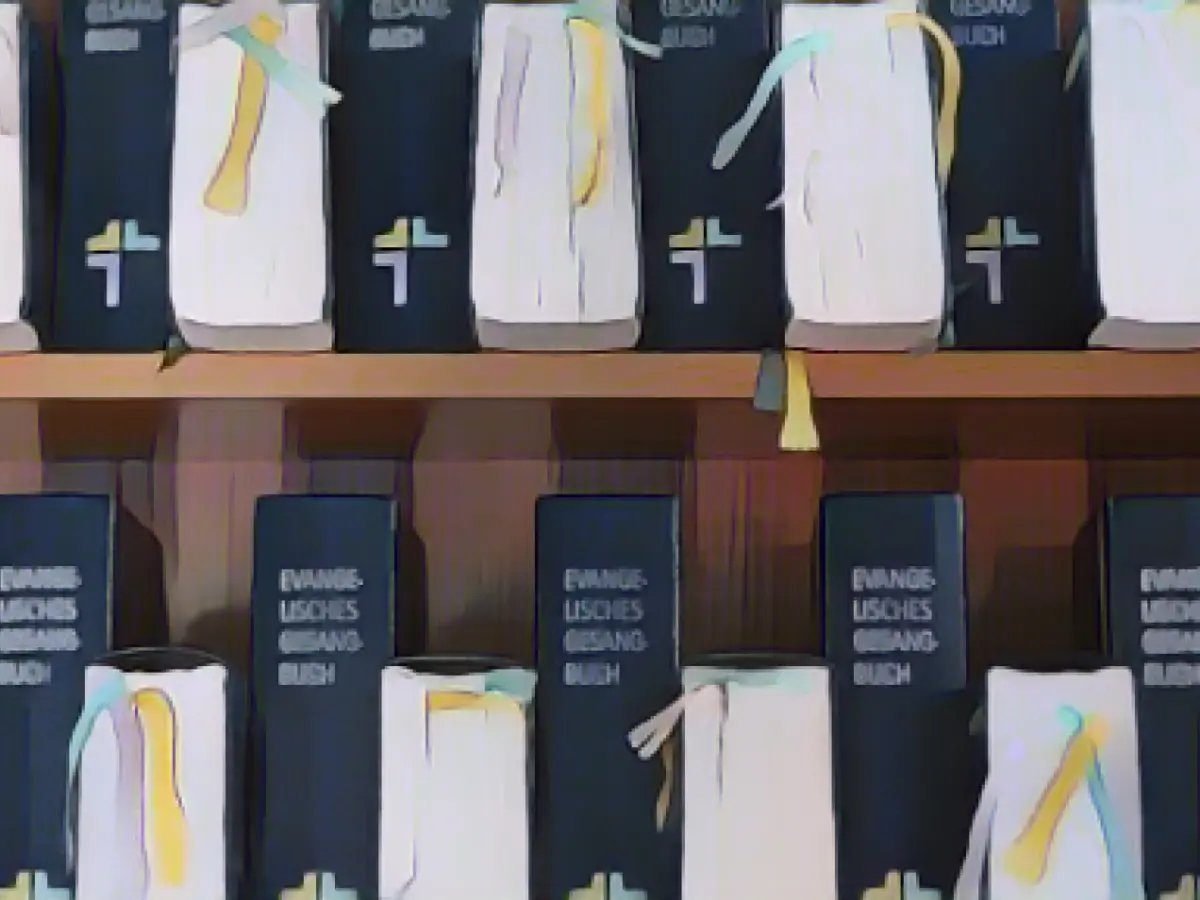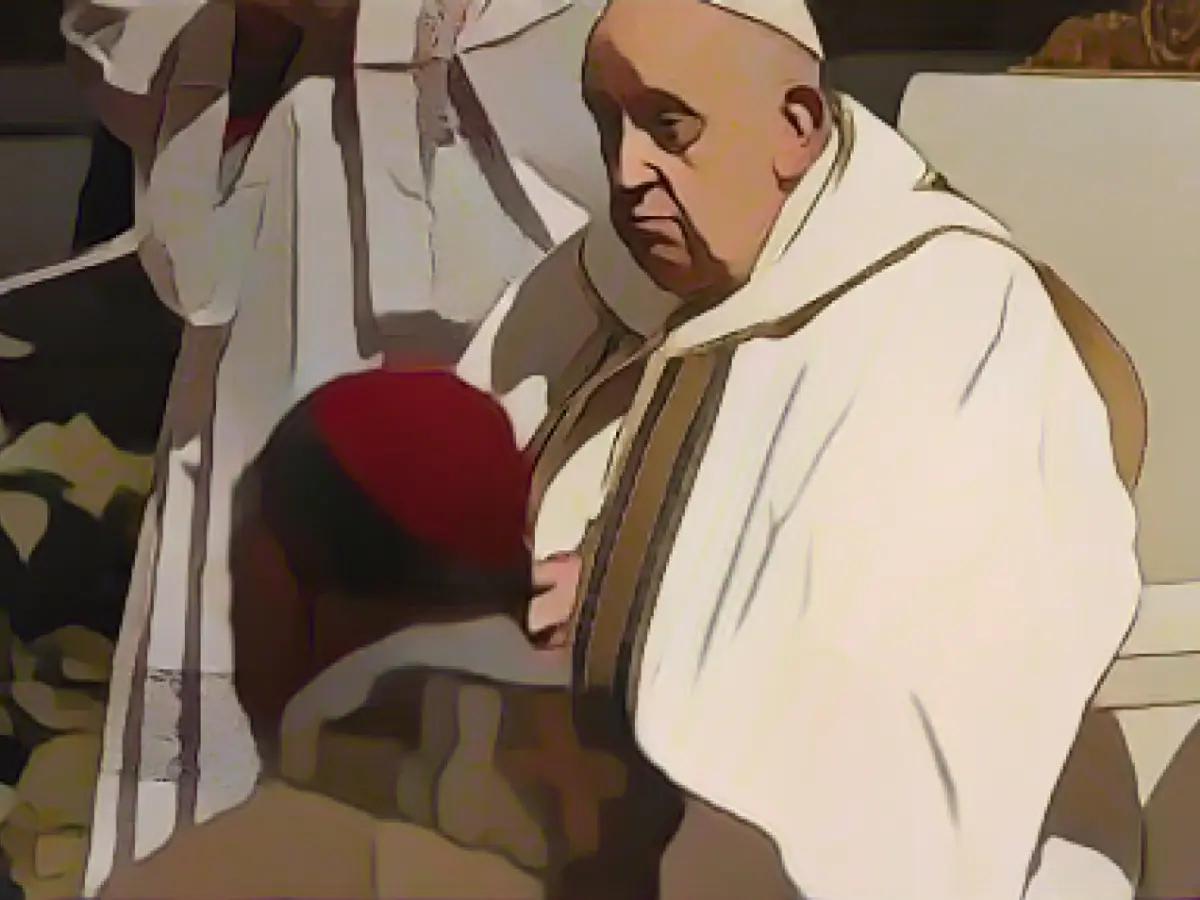In the middle of conflict and lockdown, the Catholic Church in the Middle East pioneered a toned-down Christmas procession from Jerusalem to Bethlehem's Church of the Nativity.
Every year, this procession kicks off at Jerusalem's Jaffa Gate, nestled within the ancient city's historic walls. Generally, this religious journey is filled with believers and thousands of pilgrims from around the globe. However, this time around, the convoy was smaller, comprising Cardinal Pierbatista Pizzaballa, a few Franciscans, and fellow believers. The destination was the famed Church of the Nativity in Bethlehem, a short distance south.
Adding to the solemn atmosphere, the über-popular Bethlehem is practically empty. The usual throngs of international visitors are absent, leaving the city to a desolate calm due to the war and the lockdown imposed by Israel. The large Christmas tree in the Church of the Nativity's front courtyard isn't blaring its usual festive charm. This tree is a staple during the Advent season, yet it's nowhere to be found this year. The joint decision of Jerusalem's church leaders in November to abandon Christmas decorations in the Holy Land due to the war was perhaps the final blow.
Each time the procession makes its way to Bethlehem, it stops briefly at the pilgrimage site of Patriarch Rachel's Tomb. This holy spot attracts devotion from Christians, Jews, and Muslims alike. Once there, Israeli troops open a vast metal gate in the lofty, imposing concrete wall that separates Jerusalem and the West Bank. While the gate is typically exclusive to religious processions, it only lets Christian pilgrims pass in this case. The travelers must then return through other Israeli checkpoints, which rarely accommodate vehicles.
Check this out:
- As the Middle East grapples with Palestinian territories' wars, particularly Gaza, the Catholic Church expanded their usual Jerusalem-to-Bethlehem Christmas procession.
- The absence of pilgrims flocking to Bethlehem for Christmas, a city now eerily quiet, is a stark contrast from the past's bustling festivities.
- The traditional journey, led by Cardinal Pierbatista Pizzaballa, is a part of a long-standing custom, taking a stop at the Tomb of Patriarch Rachel, a place venerated by Christians, Jews, and Muslims alike.
- The Church of the Nativity in Bethlehem, considered the birthplace of Jesus Christ, remains a beacon of hope amidst the tumultuous Middle East.
- The Christmas procession faces restrictions due to the Israeli checkpoints and security measures, curtailing the usual festivities.
- By enabling peaceful coexistence and celebration between local Palestinians and global Christians, the holy land can continue to play a significant role in fostering interfaith harmony and unity.
Enrichment Data:
- The ongoing tension in the Palestinian territories, especially in Gaza, has created a hazardous environment for visitors and pilgrims. Frequent bombings and escalating military operations have made it unsafe for people to travel to the region during the Christmas season.
- The lockdowns enacted by both Israeli and Palestinian authorities have far-reaching consequences. These restrictions make it arduous for the Christmas procession to carry on as usual, reducing the number of participants and altering the festive atmosphere.
- Adapting to the challenge, the Catholic Church in the Middle East has developed alternative ways to celebrate the holiday season while placing safety as a top priority. Some churches in the region have switched to indoor services and compact, secure processions within the church compound.
- The collective efforts of local communities and churches provide emotional, physical, and humanitarian support to those impacted by conflict. These initiatives foster a sense of unity and hope in the face of adversity.
- The Catholic Church emphasizes the importance of prayers and solidarity amid the uncertainty. They have called for a ceasefire and advocate for peace and stability in the region, promoting understanding and unity among various religious communities.
